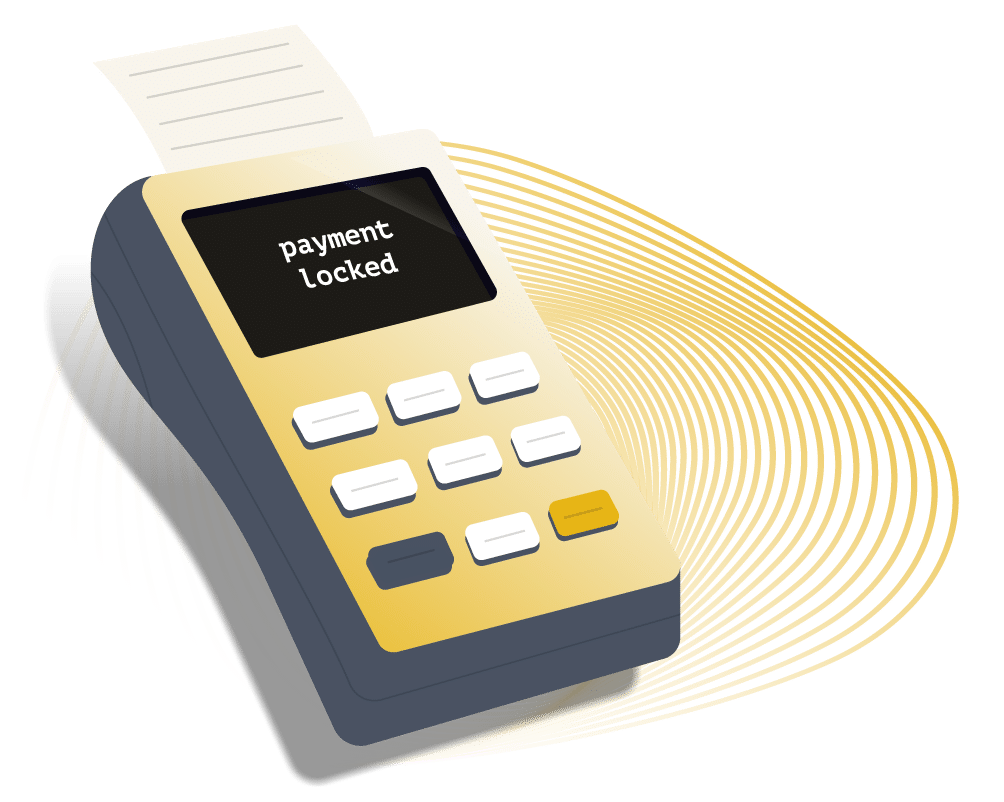MATCH List and Terminated Merchant File Lawyer
¿Eres una persona que habla español y necesita ayuda con MATCH o TMF? Haga clic aquí para obtener ayuda de MATCH en español.
Have you been MATCH’d?
If so, then you’ve been placed on a Member Alert to Control High-Risk as a business owner. One of the most common reasons your merchant account will be put on a MATCH list (also known as a terminated merchant file list, or TMF) by the acquiring bank is because of excessive chargebacks.
Being on the TMF list can make it much harder to run your business because being a high risk merchant account can make it more difficult when it comes to getting credit card processor privileges. As such, it’s important to understand if your merchant account is on a TMF or MATCH list, since it’s one of the worst things that can happen to you, particularly if you’re an online business.
What is the MATCH or TMF List?
MATCH—Member-Alert-To-Control-High-Risk—or Terminated Merchant File (TMF) is a database of previously terminated merchants created and maintained by MasterCard Worldwide, and relied upon by the payment brands to screen and regulate merchant access to the payments system. This match or tmf database lists merchants for serious violations or breaches of payment network rules and regulations, which can have significant implications for their ability to obtain merchant accounts and payment processing services. It’s maintained by MasterCard, but Visa, Discover, American Express, and all financial institutions rely on it, which means that it’s important that you understand whether your merchant file is listed as a TMF merchant account in the first place or not. This is a way for acquiring banks (aka merchant processing banks) to screen potential applicants to make sure that they’re not a high-risk merchant.
It’s important for acquiring banks to be able to control high-risk merchants since a history of high chargebacks or fraudulent transactions could be a sign of illegal activity. Different banks have different chargeback thresholds, so it’s important to look into the specific conditions that may lead to you being listed as a high risk merchant account. Acquiring banks also have the ability to add or remove merchants to or from the MATCH database.

What Happens When You’re MATCH’d?
When a merchant is placed on the MATCH list, the business name, principal, and any business partners are all recorded on file and banned from opening any new merchant accounts elsewhere. This means that it’s going to be incredibly difficult for you to uphold your financial obligations as a business, since it will be particularly difficult to find a processing bank and handling credit card payments. Once on the MATCH for a violation of standards, it is extremely difficult to obtain a new merchant account, as payment processors use the MATCH database to determine whether to approve or deny a merchant account application.
How Does One Get Off the MATCH list?
Acquirers who are searching the MATCH list can access information that is reported and stored during the previous five years. Any merchant added during that time will generate a MATCH result. If a merchant is suspected of collusive, fraudulent, or other inappropriate behavior, an investigation is launched under the questionable merchant audit program. After five years, the merchant’s data will be removed from the MATCH list, assuming no additional MATCH entries were made during that time frame. MasterCard will remove a merchant when the acquirer reports that it added the merchant in error. Acquirers loath to take that step, however, because they face liability to subsequent acquirers for losses caused by any merchant they should have placed on—or improperly removed from—the MATCH list. It is no easy task to get off this list, but it can be accomplished through diligent advocacy in some cases.

What Do You Do If Your Business is on the MATCH List?
There are a variety of reasons why your merchant’s name could wind up on a TMF or MATCH list. Since it’s difficult to create a new account, you have a limited number of steps to take if you receive a red flag as an account holder. It may feel like the end of the world to show up on a match file, but if you know the reason code contributing to you becoming a TMF merchant account, that’s the first step in facing your issue. When your merchant account is terminated here are a few things you can do:
- Ask your payment processor if you’re on a MATCH report or not. If yes, find out the reason why you’re in the MATCH system.
- Find those credit card service providers that specialize in the high-risk industry, offshore merchant accounts, and offshore payment processing. Contact them. While most regular merchant service providers may not be willing to work with businesses on the MATCH list, there are specialized providers that offer high-risk merchant accounts and services.
- Tell them you’re on the MATCH list and provide all the details and documents required by them.
- Your prospective processor will placed on the MATCH list and your 6 latest processing statements. Being able to show your current balance, how often you’re using a credit card processor, and why you’ve received a lot of chargebacks will be crucial. If your monthly volume is less than $100,000, you won’t get approval—the same can be said for having a high chargeback ratio.
- After getting approved, you should fill out the application forms and provide additional paperwork and bank statements detailing the number of chargebacks in your history and any other details surrounding the specific reasons your merchant’s account has been MATCH’d or TMF’d.
- You’ll be asked to apply some changes in your business practices so to better address the situation your business is in. MATCH list merchants with high-risk accounts need to be able to turn things around and improve their business model in order to get back into the good graces of major credit cards companies.
- Now, you are already in the underwriting process, which requires lots of patience.
- During the underwriting process, the payment processor will be too cautious with your business. The processor will ask you to submit certain documentation from time to time.
- Al last, your account is established. The processor will keep your account, transactions, and invoices under review. You should always act in accordance with the terms of your merchant agreement.
The MATCH List removal process
What can Global Legal can do for you?
We can help with MATCH/TMF issues. If it’s time for you to come off of the MATCH file, it could be a relatively simple fix. Though there’s no guarantee of any specific outcome with any MATCH case, with Global in your corner, your chances of success are increased. As a merchant account provider with a MATCH file, Global Legal can give you the best way to address your MATCH placement and potentially get you back to your old shape and ready to handle credit cards again in no time at all. Additionally, Global Legal specializes in handling Terminated Merchant File (TMF) issues, helping high-risk merchants navigate the complexities of being on the TMF/MATCH list and finding new payment processors.
We will need the information that you have on the original triggering event, including your agreement with the credit card company that put you on the list, any documents related to that, and any additional information that might be helpful.
Whether you’ve been put on a blacklist because of fraudulent activity, identity theft, or a high volume of chargebacks, you’ll need to be able to show our team of experts any documents related to your former processor, any counterfeit charges, and other information about the principal owner.
From there we will facilitate working with the past processor to be removed from the MATCH file, no matter what type of business you are.
Global’s reputation often precedes itself. Global’s MATCH demand letters are often given great weight, earned through the representation of several financial institutions, acquirers, and other entities and organizations that operate in the electronic payments industry for over ten years. Global also works heavily in the compliance field, including advising businesses engaged in electronic payments and related products and services on the applicable laws, rules, and regulations, whether from a state or federal governmental organization or enforcement body; state and local laws, rules, regulations and ordinances; the Card Brand Rules; the rules, policies, and standards enforced by processors; the NACHA Rules; and the standard in the industry (collectively, the “Rules”).
Global’s founding partners, James C. Huber and Christopher R. Dryden, are widely recognized as expert attorneys in the electronic payments industry. Further, Mr. Huber and Mr. Dryden sit on the board of multiple organizations engaged in the electronic payment processing industry.
Global’s attorneys’ vast experience and exemplary performance in ensuring sales organizations, processors, banks, software providers, technology companies, resellers, and other financial institutions’ compliance with the ever-changing regulation of the electronic payments industry complements its ability it to navigate the rapidly-evolving legal landscape related to merchants engaged in the business of providing or related to non-traditional or high-risk products and services.
Our clients, and advisory boards alike, have come to place a tremendous amount of confidence in Global’s expert opinions on electronic payments companies and their practices. Thus, a similarly high degree of trust in our assurances is warranted in this instance.
MATCH List Removal Success Stories
Fiserv put Chris’s agency on the MATCH list in 2020
Chris is a small business owner located in New York runs a full service media agency specializing in helping its customers develop their brand on social media platforms. He formed this business in 2019 and began working with First Data in 2020. Due to errors in the coding of transactions by his payment processor, client payments were showing up as declines, causing his clients to make multiple attempts to pay and leading to multiple transactions on the same credit cards. Through no fault of his own he was notified in July of 2020 that his merchant account had been terminated and he had been placed on the MATCH list.
How Global Helped
After 3 months of attempting to deal with First Data on his own (and getting nowhere) Chris enlisted the help of Global Legal who was able to identify the responsible parties and had him removed from the MATCH list and his account reinstated in less than two months from the time he retained our services. Chris is now back in business developing the careers of social media influencers the world over.
Paypal terminated Marie’s merchant processing account
Marie is a small business owner located in the State of Florida who sells and ships her product throughout the country. Marie did everything right. She had a high customer satisfaction rate and business chargeback thresholds lower than the industry averages of all the major card brands. Nonetheless, Paypal terminated her merchant processing account and seized all the money in her business account (over $35,000) all with no explanation as to why or when she might receive the money back. For nine months Marie attempted to contact Paypal on her own, every time reaching a dead end.
How Global Helped
Then Marie got Global Legal involved. We were able to locate the appropriate people, get a response from Paypal and had her money back in her account all in less than 60 days. This is the Global Legal Law Firm advantage.
Have you been placed on MATCH list or TMF? Don’t waste months or even weeks trying to resolve it on your own. The Global Legal MATCH team can get moving on your matter immediately and our tried and true process has demonstrated its effectiveness again and again. This is the Global Legal MATCH expertise at work.
Intuit put Terry on the MATCH list in 2020
Terry is a small business owner in Alabama who builds computers. He has been in business since 2006 processing payments with no issues until May of 2020 when he was the victim of computer hackers who perpetrated almost $70,000 in credit card fraud. His account was subsequently closed by his bank and soon thereafter he was notified that his merchant processing account had been terminated and he had been placed on the MATCH list. This was extremely distressing to Terry as he no longer had the ability to process payments for his customers, putting his business in jeopardy.
How Global Helped
Terry attempted to deal with INTUIT for six months on his own with no response, so, finally, Terry contacted Global Legal. Within 3 days of contacting INTUIT Global Legal was notified that Terry and his business would be removed from the MATCH list immediately. With his merchant processing accounts up and running again, his business was saved. This is the Global Legal advantage. Put MATCH list placement removal experts to work for you.
American Express added Kevin to the MATCH list in 2020
Kevin has an internet based business selling personal protective equipment online and he ships throughout the country. In late 2020 he received notice from his payment processor that he had been placed on the MATCH list for unspecified reasons but most likely due in part to two Federal felony criminal indictments his company is facing.
How Global Helped
Even with those criminal indictments, Global Legal was able to identify the appropriate and responsible parties at AMEX and was able to effectuate his removal from the MATCH list in little over 30 days after the submission of a single letter in Kevin’s defense, saving his business. This is the MATCH list expertise of Global Legal’s team put to work. That same expertise can be put to work for you. Contact us today.
Chase added Pat to the MATCH list in 2020
Pat runs a consignment store that conducts estate sales in the Florida area, the proceeds of which go to help at-risk youth in the community. She has been in business since 2017. In October of 2020, Pat was notified by her then current processor that she had been placed on the MATCH List by JP Morgan Chase in January of 2020, for suspicion of identity theft. This was the first that Pat had ever heard of MATCH list, let alone that she had been placed on the MATCH list. There was no notification and no explanation.
Pat attempted to sort out this misunderstanding on her own but continually met a dead end, so she retained Global Legal. We were able to identify the appropriate party at Chase Bank (and as it turns out her processor at the time, INTUIT) and had a response from INTUIT within four days of sending a letter to their attention.
How Global Helped
Global was able to clear up the misunderstanding surrounding the supposed identity theft and had her removed from the MATCH list within 30 days of the initial contact. Isn’t it about time you took action to be removed from MATCH list? Global Legal is here when you’re ready.
MATCH List Removal Testimonials
Industry driven, relationship-focused.
We know how hard it can be to find new merchant service providers or new processors if your previous merchant service provider has dinged you for excessive fraud or chargebacks. That’s why we leverage our relationships with cardholders, underwriters, and business accounts to get out from under the weight of the red flag your former provider has placed on your business account. We take customer service seriously, and take pride in helping businesses avoid insolvency and address any illegal transactions or suspicious activity that may have triggered a MasterCard alert and gotten your business listed as a TMF merchant.
We’ve worked with a variety of potential merchants and credit card associations, and we’re certain that we have the right person for the job. The only way to address these sorts of issues is to look into the accuracy of any information and address the card association itself, an application process we’re comfortable and confident navigating. Contact us today for a free consultation to discuss how Global might assist you with your MATCH/TMF issues. The only thing you’ll have to do is give us the information and documentation from your previous processor and we’ll do the rest!










